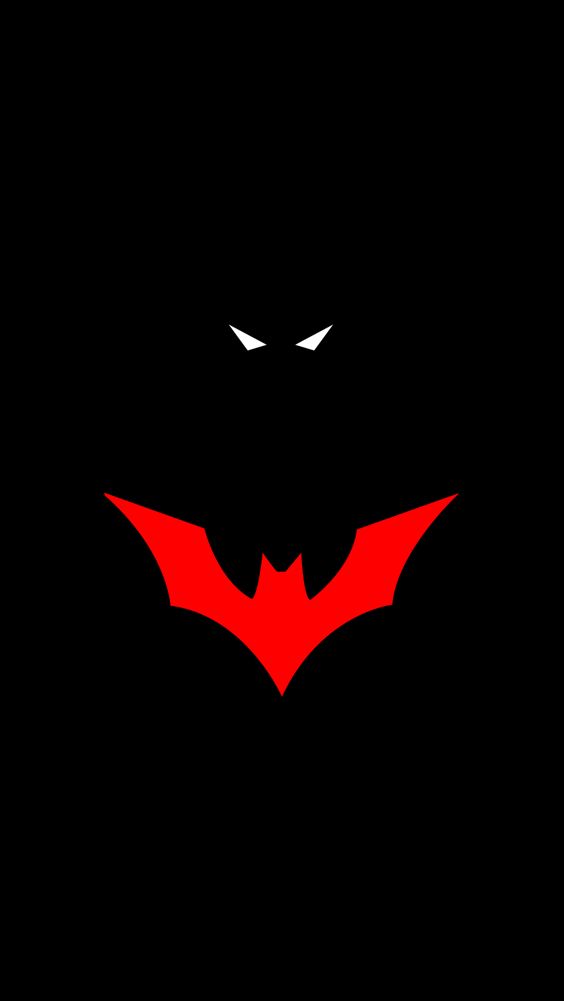Why YSK: When you cook meat, any water on the surface must first evaporate before much browning can occur. You want to get as much of a Maillard reaction as possible in the limited cooking time you have before the meat reaches the correct internal temperature. Removing the moisture first means that the heat of the cooking surface isn’t wasted on evaporation and can instead interact with the meat to form the complex sugars and proteins of the Maillard reaction.
Alternately, if you dry your meat with a duck it will promote the Mallard Reaction.
We call that the dryducken method
And if it’s steak especially, leave it out for a half hour to get closer to room temp before cooking.
Ever since I learned this tip I’ve been cooking perfect steaks. Makes a huge difference.
And you can leave it uncovered in the fridge (use a rack and a drip pan) and the airflow will dry the outside. This gives a better sear overall.
If you don’t have the time (or the foresight) to salt it hours ahead, the next best alternative is to salt RIGHT before cooking. If you salt 10-30 minutes before, osmosis will draw moisture out of the meat, which will then either be wiped away or evaporated. Salting hours ahead of time gives the moisture time to diffuse back into the meat with the salt it dissolved.
This is the right tip. If you can’t dry brine with salt overnight, then salt right before you hit heat.
That being said, give me a 24 dry brine plus reverse sear any day.
Absolutely. Long dry brine is the preferred method, but if you just remember an hour before it’s rime to cook, it’s better to wait until just before it goes in the pan.
I personally prefer just straight on the pan after a dry brine instead of reverse sear, but that’s probably because I prefer it cooked rare.
And ALWAYS rest your meat after cooking it before slicing into it for 10 minutes or so
I do this all meats, especially skin-on chicken. Gets that perfect crispy skin every time
OOoo I haven’t tried that, I’ll do that next time.
This
This has virtually no impact. Salt is more important.
Depends on how you’re cooking. It’s all about that heat gradient!
Out on an open grill on medium heat for 20 minutes? Yeah, literally zero difference.
Pan fried on a cast-iron skillet that you’ve cranked up to ludicrous mode? That shit better be room temp if you want the inside to reach a safe temperature!
… and to those of you who cook steak but have never panfried: what are you doing? Get yourself some peanut oil, crank the heat to 11, and get cooking ASAP. Look up a guide because nailing the doneness will be hard, but I guarantee you that you’ll become a better cook after a few attempts. It’s a rite of passage, my fellow meatheads.
In the case of your own fried/ludicrous mode example, leaving the steak out at room temperature for even a few hours has basically no effect. It takes a long time for the bulk of the steak to warm any appreciable amount.
“After the first 20 minutes—the time that many chefs and books will recommend you let a steak rest at room temperature—the center of the steak had risen…not even a full two degrees…After 1 hour and 50 minutes, the steak was up to 49.6°F in the center”
I use a meat thermometer to gauge when it’s room temp, so I know how long it takes (spoiler: about a day).
I’m not great about food safety so keeping meat out that long is usually a recipe for food poisoning – that’s why I cheat by putting it in the microwave on 10% power for 3 rounds of 5 minutes. This usually gets the steak 90% of the way to room temp with minimal cooking (this obviously varies a lot by wattage and cut, that’s why thermometers are useful!). After that, I wrap the steak in cling-wrap and let it rest on the counter for another hour (the wrap helps prevent evaporative cooling) which gets the steak the rest of the way to room temperature.
Thermometers ftw.
A fresh steak should be safe to eat raw. I’ve never heard of a target temp for food safety for steak either tbh.
If anything bringing steak to “room temp” would be more likely to bring it in a danger zone.
I’ve never heard of a target temp for food safety for steak either tbh
Well… believe it or not there is a suggested internal temperature for cooking beef, even if it’s not ground. The CDC recommends 145F (~63C) and FSA recommends 70C (~158F). It’s certainly true that beef is one of the safer meats to eat at undercooked temperatures (at least in the U.S. & U.K.), but it’s also true that you can achieve just about any level of doneness beyond blue while still following food safety guidelines.
As I’ve said elsewhere, I have difficulty maintaining a super-sterile kitchen, so I can’t practically leave meat out at room temperature all day without risking food poisoning. I instead opt to expedite the process by microwaving at low power. Even if you view these guidelines as silly, there remains the practical application of being able to sear thicker cuts without leaving an overly raw center. When your total cook-time is <5 minutes, these things matter.
Cooking a fresh steak to 63 degrees sounds like a waste of money to me. ( And so does cooking chicken to 70) But I think we can all agree to that because we know those are the temperatures that indicate safety if it reaches that for 1 second. And lower temperatures over time are also good.
Generally I prefer reverse searing steak because it allows for a tender perfect inside with a hard crust and no gradients in the doneness. But if I don’t have time for that (or for a sous vide waterbath) I just cook straight out of the fridge in a cast iron while flipping every thirty seconds. And for anyone doubting that flipping 30 seconds is superior to not touching it before flipping once: your steaks will be less evenly cooked which I don’t like but you are free to do so ofcourse. Read Kenji’s article on it if you don’t believe me: https://www.seriouseats.com/the-food-lab-flip-your-steaks-and-burgers-multiple-times-for-better-results
I’m just out here trying to do an entire meal on the bbq
I can never get the rice quite right
Letting it reach room temp contributes little to nothing, in comparison with patting it dry, because of a few details:
- Maillard reaction happens around ~150°C, so above the boiling point of water (100°C)
- If there’s liquid water, it’ll snip all available heat from the surroundings, when boiling, before the temperature rises up again. This means no Maillard until the water is gone.
- It takes 1cal to raise the temperature of 1g of water by 1°C. It’s a relatively small amount of heat, even for something like 25°C room temp vs. 5°C fridge temp.
- It takes 540cal to transform 1g of 100°C liquid water into 1g of 100°C steam. It’s a lot.
So if you don’t wait until your beef reaches room temperature before cooking it, you’re losing, like, 20cal per gram of beef to unnecessarily raise its temperature. However if you don’t pat your beef dry, each gram of water soaking there will be stealing 75cal to rise its own temperature to 100°C, plus 540cal to steam off. And since browning is a surface reaction and the offending water is mostly on the outside the difference is fairly big, as you aren’t comparing the whole chunk of beef with the outside water - you’re only comparing the surface beef with the water.
(I hope that this is clear, I’m damn convoluted to explain stuff.)
I’ve never seen a comparative experiment that confirms this habit and I don’t see how that would make a difference. Especially not if you use a thermometer.
Rest it for 2 hours at room temp with salt on salt on it
oooh. salt on salt action.
Empirical evidence suggests that it takes many hours for the center of the steak, the part that matters for doneness, to rise any appreciable amount.
Drying the outside of your steak is good advice because your can see the results. The same with brining because you can taste it.
If your technique is otherwise good whether that’s low/slow or hot/fast then “letting it warm up” is just bunk advice.
Another note is that if your cooking set up can’t crank up high enough to get a good sear fast then you may benefit from the center being cold to start with to give you more time to develop the crust.
I’m not sure if it is covered in the article but you can achieve extra maillard reaction with a more deeply seasoned, juicer, tender steak with a dry brine.
It’s super simple, it just takes time. Salt your steak all over and stick it in the fridge on a wire rack overnight.
If you check the steak within about 3 minutes you’ll see the salt drawing out moisture into little beads on the surface. This would be a bad time to cook, you’d lose that moisture and waste energy boiling the surface liquid off your meat, resulting in a grey bland steak. Over the next hour the juices dissolve the salt, making the brine. Leave it for several hours and the salt will diffuse into the meat and… Do science to the protein (read the dry brine article on serious eats, it explains all!). This will make the interior of the steak extra juicy and the exterior extra dry for a great crust. If you put the steak on the rack the circulating air also dries out the surface.
If you’re buying a decent steak it’s well worth the near zero effort that this takes.
For the ultra lazy, typically me but I do love cooking some good steaks so it’s worth the effort, I’m assuming this is it: https://www.seriouseats.com/how-to-dry-brine
That’s the one, thanks for linking. I typed that up on my phone and couldn’t be bothered finding it, but Lemmy deserves better!
It’s a good read, they have some great technique articles.
I buy lousy steaks, will this technique elevate a lousy steak to a mediocre steak?
My time is literally not worth as much as buying a better cut of meat.
It absolutely should, looking back at my post I’m not sure why I worded it like that, but it will improve cheaper cuts. Your mileage may vary and you still want to do a good job actually cooking the steak, but the salt will do exactly the same thing. As it travels through the interior of the steak it will season it deeply, meaning every bite it properly seasoned, not just the surface. Meat loses moisture during cooking as high heat tightens the muscle fibres, squeezing out liquid. The salt will loosen muscle fibers, which squeezes out less liquid. Apparently some of those proteins also break down into a gel like liquid which clings onto the meat better. All of this I would imagine is actually probably more beneficial to cheaper cuts.
If you know you’re eating steak tomorrow, prep it now! In fact, I have always left it for 12 - 24 hours, but depending on how thick the steak is, a couple of hours is probably fine and will be better than not doing it at all. Just be sure the steak has reabsorbed all of the liquid that the salt drew out in the first place.
Understood: I will freeze dry all meat before cooking it to remove all moisture.
You only want the surface dry.
Gotcha. I’ll carve off the edges of my steak, freeze dry those, and use meat glue to reattach them to the main, non-dried steak after.
Why don’t you just cover the steak in those silica gel desiccant beads like a normal person? Weirdo.
Well that just makes good sense.
What the fuck.
YSK that eating beef is bad for you, for the environment, and for the innocent animal that got murdered for it.
So is driving. Vegetables are bad for you too, they quite literally have built defenses to prevent being eaten and we still eat them. To much and they’re actually legitimately bad for us. Plants also make connections and trees use mycelial networks to communicate and are able to tell apart individual trees, are able to hear distress calls and can respond and even send nutrients to that specific tree.
Animal consciousness is hardly known and people use that as a metric for plants when they’ve been around for much longer. Just because we don’t understand something and have yet to uncover how it works doesn’t mean it isn’t happening on a daily basis.
And yet you know what? I’m here today because I have survived life by consuming other plants and animals. I have lived my life doing good deeds and done my best to help those around me, working for non-profit performing arts and events. I rescued a dog whose owners were just going to abandon her in the woods with a bag of food, and she lives a happy life now giving me snuggles every morning. And if continuing that means I get to enjoy bacon and beef in a moderate omnivorous way, that’s what life and being human is. If I starve or deprive myself of the series of joys that help keep me positive and the cost of that is an animal that feeds multiple people like myself then that is a worthy sacrifice for the animal. The fact that vegans have such a high risk of nutrient deficiencies is pretty telling as to how we use multiple sources to collect what we need. Also the fact that like, a majority of the animals on the planet are omnivorous. Deer will eat chicks. Happily.
I don’t agree with factory farming. I don’t agree with wood harvesting (it’s pretty devastating to the ecosystems in Oregon that have had these forests for hundreds of years before settlers started clearings). I don’t agree with driving. And yet, I recognize that all of these are byproducts of what society has deemed as necessary. I don’t agree with factory farming, but hundreds of thousands more people would be starving without it - local farms just cannot take the meat demand nor the crop demand when meat inevitably falls and plant consumption rises. This is why it’s good to look into full spectrum reduction. People using local farms more, sometimes supplementing lab-grown and vegetarian options to reduce factory farming in hopes to minimize its need as much as possible. I don’t agree with wood harvesting, but hundreds of thousands of people would be without shelter, fire, and transportation maintenance (mostly for railways, already something that is greatly suffering). I don’t agree with driving, but I recognize that as a result of our work culture it is essentially a necessity again because without me getting to my job I do not survive. Personally, I don’t have my drivers license and mostly bus and walk. I think we should be looking into road grids, alternative tires, and pushing more for automated driving. The overall cost of energy can be supplemented and is less toxic than 200 million tires a year wearing rubber into the air. Bonus: automated grids also would reduce gas consumption. Of course, lobbyists exist and that’s why this is a pipe dream.
Hopefully you see my point in this. You can do everything in your power to control what you want, but we can only control how we help the people around us. Being condescending about the omnivorous human eating meat is a net negative to the world because you are only pushing people away from being in the reductive mindset, while simultaneously missing the mindset of who you’re trying to make a point to. People who eat meat either genuinely do not believe they have certain capacities and that makes it ok. Again, what you say is not effective to these people. The other people are people who do believe that animals have more capacities than we realize, and still make the choice for a variety of reasons. It could be food aversions and meat is their primary thing. It could be something related to what I’ve already explained. It could even be that there are people who have the capacity to eat something they love. Something that humans have historically done. Cattle made you rich, you wanted those cows alive and you love those cows. And yet, when it’s that cows time because you and your family are hungry and need to sell its meat. The only difference between an animal and a plant is that you’re the one humanizing only the animal - apparently plants don’t make the cut for your respect? Cause you are just as much of a murderer as the rest of us in that regard.*
* And that right there is your fallacy. Eating an animal isn’t inherently evil or bad, not any more so than raising chickens for their eggs and eventual meat. I’m sure it could be, but I would argue that first and foremost disrespecting the animal is. There’s nothing wrong with eating plants, but if you step on the lettuce and carrots you’re wasting food. It was raised just like the lamb was, and yet the lamb was turned into a beautiful lamb au vin, whereas the lettuce and carrots were turned to mush.
For what it’s worth, I only mostly disagree with you. I wouldn’t have written something so long because I disagree with you entirely, and I think I try to be fair about moderation and what is unreasonable in my points. I 100% agree that there are issues with meat in our society and that factory farming is disrespectful to the animal and it as a human construction is evil, particularly in the U.S. more so than other countries. But it’s also a necessity for people’s survival because we are poor. Meat in moderation is not any worse for you than vegetables in moderation, factory farming is bad for the environment but that doesn’t mean that all farming is, nor do innocent animals have to be “murdered” in order for someone to enjoy meat. There are more options than just animals now, we’re living in a crazy world.
You just wrote a whole book for me? Anyway, plantbased is the future :)
I think lab grown meat is the future. To each their own.
Just to point out that you stated that factory farming is bad for the environment, but it is actually the most sustainable form of animal agriculture with respect to the environment. With factory farming the entire process has been optimized for cost (don’t forget the entire point of the animal agriculture industry is to make money). What is not prioritized is the animal welfare, in any regard. In the stereotypically rich countries such as the UK, Switzerland, the US and Australia it is still standard practice to gas pigs to death, similar to the gas chambers used in WW2, send all male chicks to death through a giant macerator and other truely horrific forms of torture and death.
If you then look at the other side, in where there are animals in green fields living “happy lives” then this has the greatest, by far, impact on the environment. The amount of farming land needed to sustain the current world-wide meat and dairy consumption using the non factory-farmed animals far far exceeds the available land mass that we have, which is the reason factory farms exist. Where there is a demand, there needs to be a supply.
And when it comes to the difference between plants and animals, there is a fundamental difference that we need to consider - do plants suffer? As most (sane) people are against animal cruelty we need to ask ourselves what that actually means. Most people would answer that they don’t want the animals to suffer. The reason we, and animals, suffer is because we have a consciousness and have the ability to feel pain through our nervous system - plants do not have this ability. So when you compare pulling a carrot from the ground to slicing a cows neck where the cow screams and thrashes and clearly does not want to die - it’s pretty disingenuous.
My last point is that you make the statement that due to us having historically eaten meat and dairy that implies that gives us justification to continue. There are many horrible things humans have done in history (kill, rape) and we have built our current ethical and moral viewpoints from constantly improving, and striving to improve, as a species.
Most of us lucky enough to even be here in this small community that are likely the people that live in wealthy enough countries where there is a choice we can make 3 times a day to reduce causing needless suffering to these animals. Where I live in Europe, and many other countries now, I can simply buy plant milk instead of cow milk when eating my cereal, or one of the many plant alternatives. And of course this doesn’t apply to everyone on the planet, some people are forced to consume animal products due to the system they live in but for most people reading this there is a choice.
I strongly recommend watching this documentary to see what the animal agriculture industry truly is: Dominion (2018) - full documentary
It’s quite late where I am but tomorrow I will edit and add sources to my claims.
Plants also make connections and trees use mycelial networks to communicate and are able to tell apart individual trees, are able to hear distress calls and can respond and even send nutrients to that specific tree.
lol
Ysk I’m having steak tonight.
I agree with the person you responded to and I try to limit my meat consumption, esepcially beef. This has taught me that if I become a vampire that people are gonna die.
I’ll agree it’s bad for the environment and also off topic for this post. But it ain’t murder or evil.
Go and kill a neighbours dog and eat it, and then be amazed about how many people will call you evil and a murderer.
deleted by creator
nah just gonna wrap it in cheese
you’re basically just dry aging it at that point, no?
deleted by creator
That’s just dry aging with extra steps!
subbed to that channel, thanks!
Finally, an actual and legit YSK. Thank you very much my good sir.

Dear God
God had no part in this travesty, that’s for sure.
They can’t stop you from ordering a steak and a glass of water!
There are people who cook wet meat? I mean there are people who do not know that baking soda is a wonderful tenderizer.
Hello, I am people
Every day, that list of people grows: https://xkcd.com/1053
The wife is not a fan of my forking methods of tenderization.
Unbrowned steaks are surely regretted,
But Froyn just likes their meat wetted
So, both in kitchen and bed,
The same can be said:
Their wife just hates their forking method
Yes, lots of people don’t dry off the marinade when cooking marinated meat. Which shouldn’t be an issue with a steak but just as an example.
Then sometimes people don’t dry off meat well enough after washing it. Just a quick dab with some paper towel is often not enough.
But yes, the title isn’t the best and the Article itself uses a different one and goes more into detail. It suggest air drying your steak for hours in the fridge. That’s definitely not something everyone does. It also goes more into detail about the Maillard Reaction.
But why on earth are you washing your meat?
My parents ALWAYS marinate their steaks in a ziplock bag of liquid marinade, immediately slap those soggy slabs on the grill without drying, and subsequently cook them to a rubbery puck of grey meat. Suggestions to change their ways is futile - Americans don’t like being told they bbq incorrectly…
I did this on Sunday, but it was cooked maybe medium rare. I haven’t cooked a lot in my life. What should I do if I want to marinate next time?
Honestly, I’ve stopped seasoning my steak beyond salt and pepper and wouldn’t personally marinate anything other than something like a skirt steak for fajitas anymore.
If I were to marinate again, I would pull the steak out of marinade and let if drip dry over a towel for 30 minutes or so (or as long as I had patience for - I’m guilty of allllllways cutting corners).
I mean, I don’t cook it sopping wet, but I am lazy…
there are people who do not know that baking soda is a wonderful tenderizer.
Whaaaaaaaaaat
Sometimes people don’t dry meat after washing it. Which is fine for some dishes. Or if they dry it they don’t do it well enough. But ye, the title isn’t that well chosen.
The article talks about letting meat air dry for several hours in your fridge. And goes further into the Maillard Reaction.
You really shouldn’t wash meat. It doesn’t serve any purpose except to possibly spread the bacteria that may be present to other places. Best thing to do is just cook it to proper temperature.
That is true. I like using a propane torch. The water will evaporate quickly and you get that extra crunch very easily without cooking the inside too much. Especially with with first slow cooked meat and then finish with the torch. Water will evaporate from surface quickly.
I really need to get a kitchen torch huh
Life hack: all you really need is a lighter and your favorite flavor of hairspray or spray paint.
YSK: Meat is bad for you, the planet and the animals.
It’s bad for the animals? Which ones, the ones we eat? Yes dying is quite bad for you. Meat is not bad for us, I guess it is bad for the planet but that is more of a overpopulation problem than meat problem.
Yes the ones people eat, getting killed is bad.
73 billion chickens are killed each year for profit/taste.Meat is generally pretty bad for us.
Meat is bad for the planet because it’s incredibly resource intensive.
Downvoting sourced statements because people don’t like to hear the facts… We’re well on our way to become Reddit
Humans are even more incredibly resource intensive. Are you doing your part by not breeding? Judging by your post history I’d say you’re well on your way, good show!
How do you define “bad for you” because eating meat is pretty much firmly in that category by all objective measurements when weighed against alternatives.
User name is sus
I assure you I am not a penguin using the internet
OK? That’s irrelevant to the thread.
YSK: Meat is bad for you, the planet and the animals.
We already know but choose to ignore it, cuz we don’t really care about all of the above. 🤷♂️
deleted by creator
For all the downvotes you are objectively correct. Meat consumption is one of the biggest voluntary climate impacts in a Western person’s lifestyle.
And I say that as someone who loves eating meat, I wish I had it in me to transition away.
deleted by creator
There is no ethical consumption. Eat what you want, just don’t pretend you’re better than someone else because you have some magical diet.
deleted by creator
What if I slaughter the cow myself?
deleted by creator
So what are we supposed to do with all of the living cows? Isn’t the main problem with cattle farming the greenhouse gases that the cows release when they fart and poop? Can you explain what’s unethical, if that’s not the reason?
deleted by creator
deleted by creator
Oh yeah? Don’t read this, sweetheart.
deleted by creator
deleted by creator
deleted by creator
To all the downvoters, just know that I’m comfortable each day of my life knowing that I’m not the problem.
Don’t tell me what to do.
deleted by creator
You was. “Just know” is a telling me to do
Does this apply to ground beef? Cuz I’m curious how I would effectively dry that without just making a mess. Is it just the same as a steak and patting it with a paper towel would be enough?
How often is your ground beef wet? Regardless I feel like most applications of ground beef you typically wouldn’t have to worry about it, you’re always cooking it well done for the most part so it will brown, like ground beef in a pan for tacos or hamburger helper type stuff.
If it’s for burgers and it’s wet for some reason, then yeah a paper towel pat down would be fine, but idk typically when I’m handling ground beef even forming my own patties I wouldn’t really ever describe it as all that ”wet”.
Yeah for burgers. I’m cheap and usually just have frozen premade patties, which is why they would be wet.
If they are thawed and very wet then it wouldn’t hurt to dry them. I have also heard that they brown best if you minimize the number of flips, ideally just one flip if you time it correctly.
I’d use cloth or you may leave bits.
deleted by creator
thats interesting, now im curious if it would help for mine, i usually put a lite coating of oil on my steaks then cook at 700 degrees, i found the oil helps with the charring but still gets good marks on the meat.
Putting any piece of meat on the grill at 700° is going to leave good marks.
I usually put mine on at 45° but then rotate it to 90° to get good grill marks. /s
Meat is murder y’all/s I prefer soy
How can you be certain plants aren’t also aware they are being killed? We already know that plants communicate with each other.
I like the murder. I just prefer the taste of soy
Meat yummy
Look at Beast Boy over here. x
Adding some detail. Evaporating water takes way more energy than just heating it up.
When you put energy (heat) into water that’s below 100c it gets hotter. When you add 4,184 to a liter of water the temperature goes up by 1c. If the water is already at 100c it takes 2,260,000 to turn that into 100c steam. The energy that goes into turning water into steam isn’t going into the steak.
So if you put a wet steak on the grill it will create an insulating layer of steam that keeps the steak at around 100c (even if the pan is above 100c).
That’s also why you only salt your steak right before or after heating it. If you let salt sit on the steak it will draw out moisture, reducing the Maillard reaction and drying out the steak.For a great practical way to grill the steak perfectly, check out videos on “cold searing”.
You can and should actually salt your steak several hours before cooking, leaving them uncovered in the fridge. Water will be drawn out, and then reabsorbed along with the salt. Dry the surface and salt again if desired right before cooking.
Yep, salt the steak heavily the night before and leave on a wire rack in the fridge uncovered. This is called a dry brine and it’s miles better than the bland steak you get with a salty crust and watery inside if you only salt just before or after cooking.
























